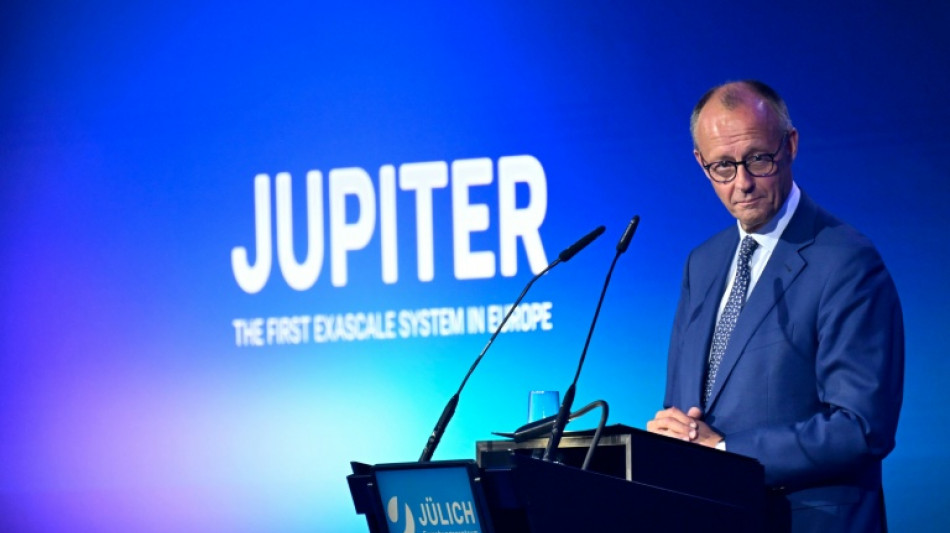
Merz inaugurates supercomputer, says Europe can catch up in AI race

German Chancellor Friedrich Merz said on Friday that Europe can catch up in the global artificial intelligence race as he inaugurated the continent's fastest supercomputer.
"The United States and China are in a neck-and-neck race to compete for future market share in an AI-supported global economy," he said at the inauguration of the Jupiter computer, which will be able to perform at least one quintillion (or one billion billion) calculations per second.
"We in Germany, and we in Europe, have every opportunity to catch up and then keep pace."
Jupiter, based in Juelich, western Germany, is housed in a centre about half the size of a football pitch and is packed with about 24,000 Nvidia chips, which are favoured by the AI industry.
With the power of about one million smartphones, experts say it is the first supercomputer that can be considered internationally competitive in training AI models in Europe.
"In Germany and in Europe as a whole, we need sovereign computing capacities that are on a par with our international competitors," Merz said.
"This is a question of competitiveness as well as the security of our country."
Researchers across numerous different fields will be able to access the 500-million-euro ($580-million) supercomputer, whose uses go far beyond AI.
They range from creating more detailed climate forecasts that can help predict extreme weather events to medical research and studies related to the energy transition.
L.Leduc--PS

 London
London

 Manchester
Manchester
 Glasgow
Glasgow
 Dublin
Dublin
 Belfast
Belfast
 Washington
Washington
 Denver
Denver
 Atlanta
Atlanta
 Dallas
Dallas
 Houston Texas
Houston Texas
 New Orleans
New Orleans
 El Paso
El Paso
 Phoenix
Phoenix
 Los Angeles
Los Angeles



